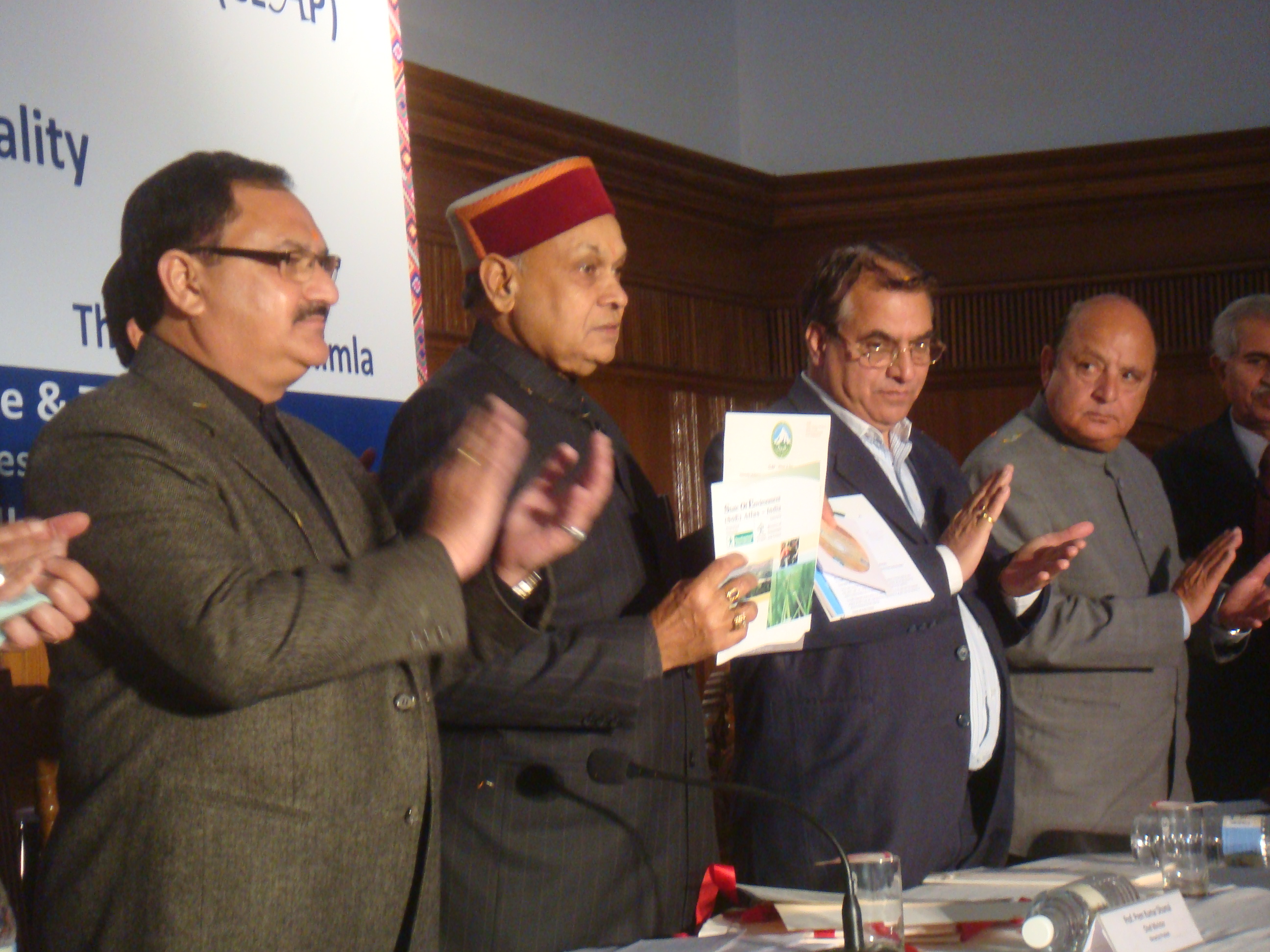|
CLAP for Himachal:
Towards the First Carbon Neutral State in India
The twenty first
century has brought with it new environmental challenges. Climate change
has become the bane of mankind’s progress. But unlike other
environmental impacts of anthropological activity, climate change is a
totally global phenomenon.

The effects of global climate change are being felt in Himachal Pradesh,
located in the ecologically fragile region of the Himalayas – glaciers
are melting at a faster rate, snowfall is delayed and moving to higher
altitudes, crops are failing, and there is an increase in the occurrence
of landslides, droughts and unseasonal flash floods. While global
warming and consequent climate change could lay bare the once-snow
capped mountains, wreak havoc on the water systems and destroy the
centuries-old natural balance and biodiversity, the people of Himachal
Pradesh have pledged to proactively and sustainably develop their State
into the first carbon-neutral
State in India through the CLAP (Community Led Assessment, Awareness,
Advocacy and action Programme for environmental improvement and carbon
neutrality) Programme.
The CLAP Programme, initiated by the Himachal Pradesh government in
association with Development Alternatives (DA), follows the multi
stakeholders’ participatory approach, with the goal of mobilising
community responsibility for environment protection and carbon
neutrality in the State through a network of Eco-Clubs, Mahila Mandals,
Panchayats, urban local bodies and NGOs, leading to a mass movement
realising the dream of making Himachal an environmentally ‘safe’ State
as also a role model for the rest of the country.
While launching the programme, the Honourable Chief Minister of Himachal
Pradesh, Professor Prem Kumar Dhumal underlined the need for an
environmental policy which could not only ensure the protection of
environment but also the uniform development of the state. He said that
there was need to take along all the stakeholders in order to create a
congenial atmosphere to move ahead towards making Himachal Pradesh
carbon neutral in all respects.
As the programme management agency, DA has designed the programme to be
implemented in three phases over a period of three years: The
preparatory, development and consolidation phases, with the objectives
of:
• Systematically assessing and documenting environment quality and
carbon footprint
• Generating systematic awareness among communities, decision makers and
other stake holders on the
¨ State of the environment
¨ Causes of environmental degradation
¨ Possible ameliorative action
• Establishing a vibrant network of Eco-clubs, Mahila Mandals, NGOs,
etc., to promote environmental advocacy for policy change
• Mobilising communities and Panchayats to undertake environmental
improvement actions at the local level and reduce their carbon
footprints
While addressing the Green Issues (related to the impact of agriculture,
degradation and destruction of renewable natural resources), Brown
issues (the impact of industrialisation, urbanisation, transport, energy
generation and solid and hazardous waste) and the Blue issues (all forms
of water-related issues, including ground and surface water), the
programme will be involving the people in finding the present status,
identifying the key environmental issues and hotspots and then build
their capacities to analyse and understand the cause-effect relationship
and to take up actions at their own level and also influence the local
governments and authorities.
The programme envisages reaching out to the 80 administrative blocks
through the field implementing agencies comprising Eco-clubs, Mahila
Mandals, NGOs, etc., under the coordination and facilitation of District
Coordinating Agencies comprising of Lead NGOs/Institutions. To meet this
extensive coverage, the programme management has been decentralised.
The active participation of the citizens and the support of different
administrative departments and Panchayats, strategic direction and
guidance from the advisory and steering bodies comprising senior
representatives of various relevant line departments and experts from
various sectors and the monitoring and evaluation system set in place by
the management agency will enhance the efficacy of the programme.
The Himalayas shape the climate, hydrology and soil fertility of much of
South Asia and, therefore, preserving the ecological and environmental
sanctity of the mountains is not only of paramount importance to
mountain inhabitants but also for the entire region.
Keeping in view the sensitive ecological conditions, the process of
formulating an environment master plan, the imposition of a voluntary
‘green tax’ on vehicle users (to generate a fund for combating climatic
changes) and a total ban on polythene across the State have been
initiated in the State as a long-term planning process to address
environmental issues more effectively.
At the recently concluded Himalayan State’s Chief ministers conclave on
‘Glaciers, Climate Change and Livelihoods’, recommendations have been
made based on the technical deliberations for incorporation in the
action plan for national mission for sustaining the Himalayan ecosystem.
CLAP for Himachal Pradesh will go hand in hand with these initiatives of
the state and take the message to the people of the state, making it
truly participative. q
Usha Srinivasan
usrinivasan@devalt.org
Back to Contents
|